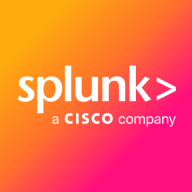

Splunk Enterprise Security and IBM SmartCloud Analytics are competing products in the analytics solutions category. Splunk Enterprise Security generally leads in pricing and customer support, while IBM SmartCloud Analytics takes the upper hand with its advanced features, appealing to tech buyers seeking comprehensive analytics.
Features: Splunk Enterprise Security offers data indexing, real-time monitoring, and customization options. IBM SmartCloud Analytics provides predictive analytics, in-depth data analysis, and a broad feature set.
Ease of Deployment and Customer Service: Splunk Enterprise Security is known for simple deployment and responsive support. IBM SmartCloud Analytics has various deployment options, a steeper learning curve, and comprehensive support.
Pricing and ROI: Splunk Enterprise Security is attractive for competitive pricing and ROI. IBM SmartCloud Analytics, with higher setup costs, offers potentially higher ROI with its feature-rich solutions.
| Product | Market Share (%) |
|---|---|
| Splunk Enterprise Security | 15.4% |
| IBM SmartCloud Analytics | 1.5% |
| Other | 83.1% |
| Company Size | Count |
|---|---|
| Small Business | 110 |
| Midsize Enterprise | 50 |
| Large Enterprise | 265 |
There are two main flows in IBM SmartCloud Analytics - Log Analysis - data ingestion and querying.
The data ingestion flow starts when data is sent to the Receiver interface. The IBM Tivoli Monitoring Log File Agent and an EIF Adapter are provided as components of IBM SmartCloud Analytics - Log Analysis so that log data is analyzed by IBM SmartCloud Analytics - Log Analysis using the Data collector or Receiver interface. IBM SmartCloud Analytics - Log Analysis analyzes data and extracts information about the domain, for example, error codes, IP addresses, timestamps, application / middleware / infrastructure domain specific attributes and so on. The extracted information and any additional raw data that you choose to add is stored in the BigData data store.
The data query flow is triggered by the IBM SmartCloud Analytics - Log Analysis application and is used to run queries. The results are displayed or further processed by the IBM SmartCloud Analytics - Log Analysis application extension. A IBM SmartCloud Analytics - Log Analysis application extension can also query an external data source to link a search result to, for example, say performance data. You can also use IBM SmartCloud Analytics - Log Analysis to query to an external data source or to perform analytics on the returned results using logic supplied by IBM SmartCloud Analytics - Log Analysis or by a IBM SmartCloud Analytics - Log Analysis application extension.
Splunk Enterprise Security delivers powerful log management, rapid searches, and intuitive dashboards, enhancing real-time analytics and security measures. Its advanced machine learning and wide system compatibility streamline threat detection and incident response across diverse IT environments.
Splunk Enterprise Security stands out in security operations with robust features like comprehensive threat intelligence and seamless data integration. Its real-time analytics and customizable queries enable proactive threat analysis and efficient incident response. Integration with multiple third-party feeds allows detailed threat correlation and streamlined data visualization. Users find the intuitive UI and broad compatibility support efficient threat detection while reducing false positives. Despite its strengths, areas such as visualization capabilities and integration processes with cloud environments need enhancement. Users face a high learning curve, and improvements in automation, AI, documentation, and training are desired to maximize its potential.
What Are the Key Features of Splunk Enterprise Security?In specific industries like finance and healthcare, Splunk Enterprise Security is instrumental for log aggregation, SIEM functionalities, and compliance monitoring. Companies leverage its capabilities for proactive threat analysis and response, ensuring comprehensive security monitoring and integration with various tools for heightened operational intelligence.
We monitor all IT Operations Analytics reviews to prevent fraudulent reviews and keep review quality high. We do not post reviews by company employees or direct competitors. We validate each review for authenticity via cross-reference with LinkedIn, and personal follow-up with the reviewer when necessary.